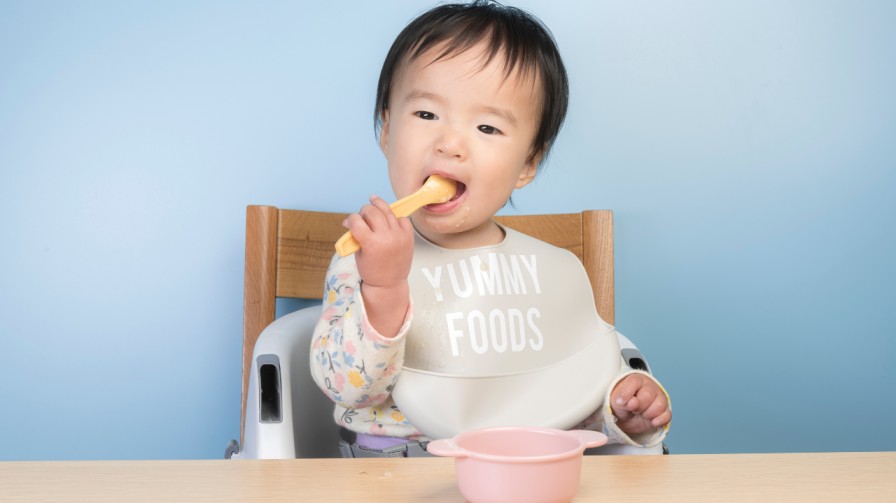Is Kale Safe For Your Baby?
As a parent, you want to provide your baby with the best nutrition to support their growth and development. Kale, a nutrient-packed leafy green, often finds its way into adult diets, but is Kale safe for your baby too? In this comprehensive guide, we’ll explore kale benefits, and the safety of introducing kale to your baby’s diet, address common allergen concerns, and shed light on the nutrient-rich benefits of this powerhouse vegetable.
Read more: Nutritional Benefits Of Kale For Pregnancy
Is Kale safe for your baby?
Kale is safe for babies until she/he is 7-8 months old, once they are ready for solid foods. It’s crucial to cook and puree the kale to a smooth consistency, as raw kale can be tough for infants to digest. Besides, you must always consult your pediatrician before introducing new foods to ensure they align with your baby’s dietary needs and any potential allergy concerns.
Read more: Top 7 health benefits of kale for pregnant women

Kale can be a part of your baby’s diet, but it’s crucial to follow these guidelines:
- Age-appropriate introduction: It’s generally recommended to introduce kale to your baby when they are around 6 to 8 months old and have started eating solid foods. Always consult your pediatrician before adding new foods to your baby’s diet.
- Preparation matters: Kale should be cooked thoroughly to make it easier for your baby to digest. Steaming or boiling kale until it’s tender and then pureing it can be an excellent way to serve it to your little one.
- Watch for digestive reactions: Start with small amounts to monitor how your baby’s digestive system responds. Kale is fiber-rich, which can sometimes cause gas or tummy discomfort.
Read more: The Best Way to Eat Kale: From Hummus to Smoothies
Nutrient-rich benefits of Kale for babies
Kale is celebrated for its exceptional nutritional value. When safely introduced into your baby’s diet, it can offer numerous benefits:
- Rich in Vitamins: Kale is packed with essential vitamins like A, C, and K. Vitamin A supports healthy vision, while vitamin C boosts the immune system. Vitamin K plays a role in blood clotting and bone health.
- Mineral Powerhouse: Kale is a good source of important minerals such as calcium, iron, and potassium. These minerals support healthy bone development, oxygen transport in the blood, and overall growth.
- Fiber for Digestion: The fiber in kale supports healthy digestion and can help prevent constipation in your baby.
- Antioxidants Galore: Kale is loaded with antioxidants that protect your baby’s cells from damage caused by free radicals.
Read more: Benefits Of Kale For Skin: Nature’s Secret For Radiant Skin

Is Kale a common allergen?
Food allergies can concern parents introducing new foods to their babies. The good news is that kale is not considered a common allergen. However, as with any new food, there’s always a slight possibility of an allergic reaction. Here’s how to approach it:
- Introduce one food at a time: When introducing kale or any new food, offer it in isolation. This way, if your baby does have an allergic reaction, you can pinpoint the culprit.
- Watch for allergic reactions: Common signs of food allergies include hives, rash, swelling, vomiting, diarrhea, or difficulty breathing. If you notice any of these symptoms, seek immediate medical attention.
- Family allergy history: If there is a family history of allergies, especially to leafy greens like spinach, it’s advisable to consult your pediatrician before introducing kale.
Read more: Did you know? Kale helps against cancer!
Here are some simple ways to incorporate kale into your baby’s diet:
- Kale puree: Steam kale until tender and blend it into a smooth puree. Mix it with other vegetables or grains for added flavor.
- Kale baby food: Look for baby food products that contain kale, making it easy to include in your baby’s meals.
- Mixed vegetable purees: Combine kale with other baby-friendly vegetables like sweet potatoes, peas, or carrots for a balanced meal.
- Kale chips: You can prepare kale chips as a crunchy snack for older babies who have started on solids. Bake kale leaves with a touch of olive oil until they are crispy.
Read more: Carb In Kale: Are Kale Best Low-Carb Vegetables?
In conclusion, Kale can be a nutritious addition to your baby’s diet when introduced at the right age and prepared appropriately. It offers many vitamins, minerals, and antioxidants that support your baby’s growth and development.
Remember, every baby is unique, and you must consult your pediatrician before significantly changing their diet. With the right guidance, you can confidently introduce kale into your baby’s culinary journey, offering them a nutritious start.

